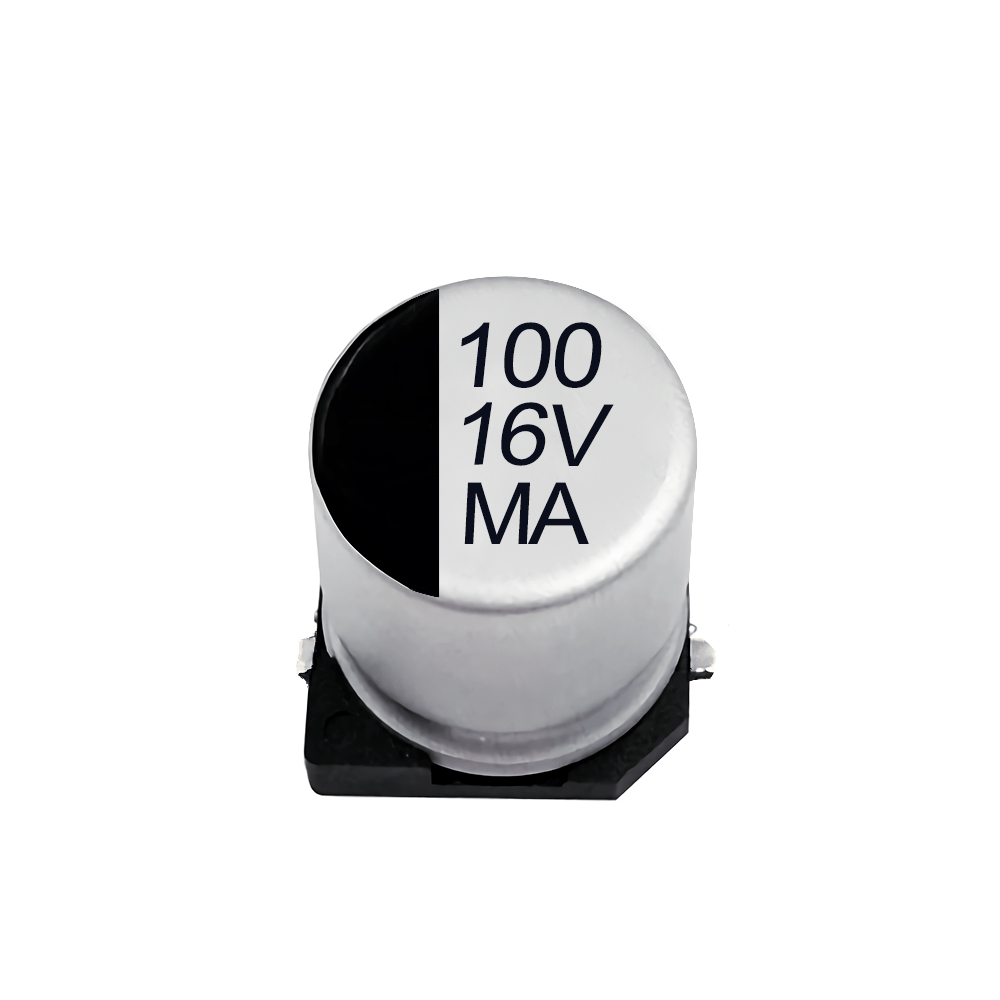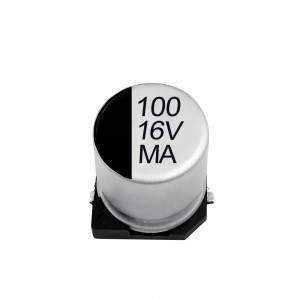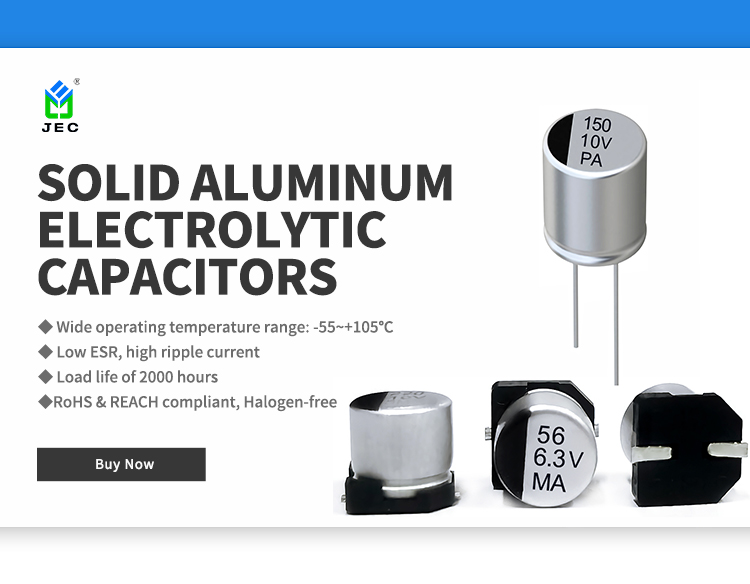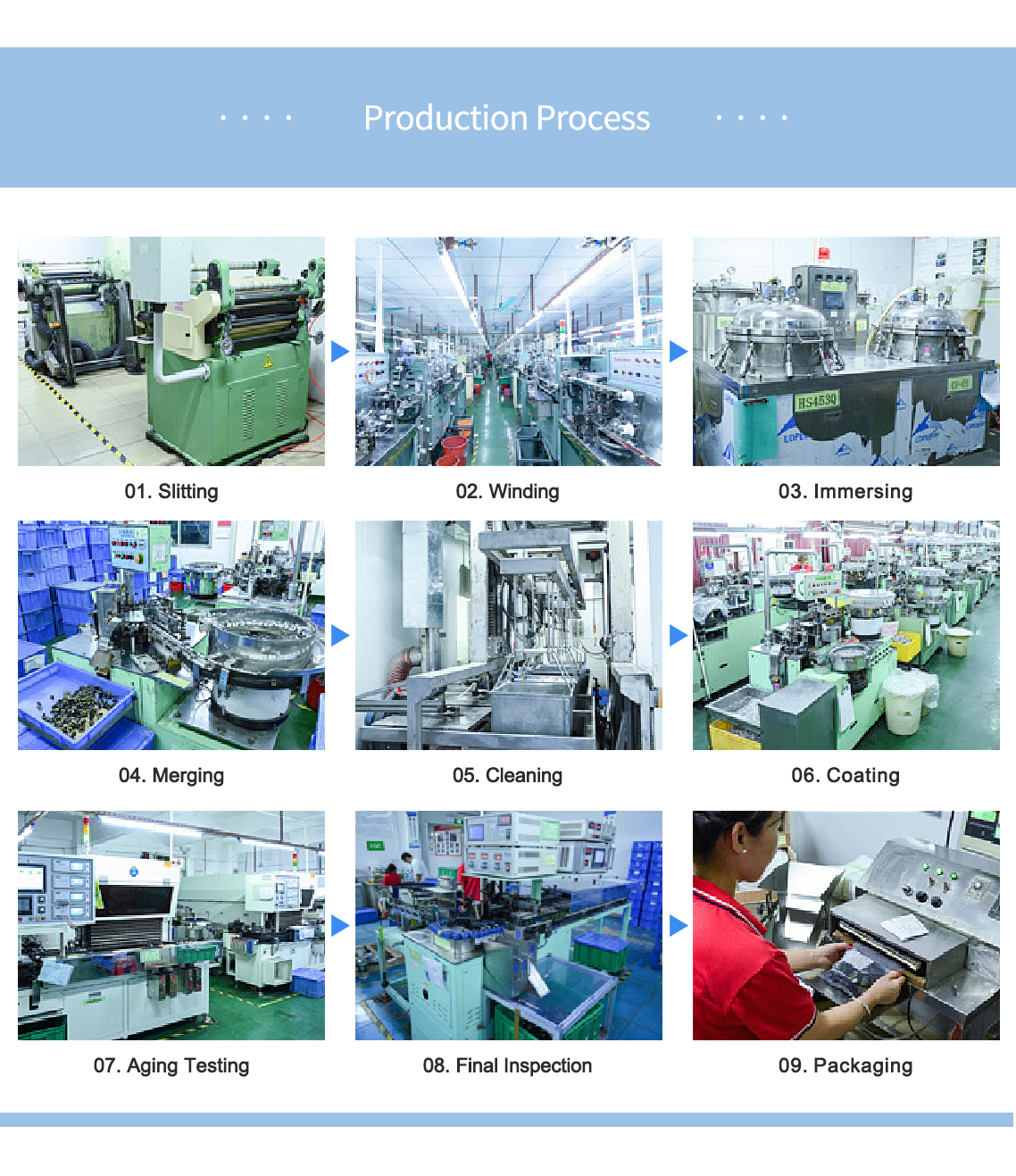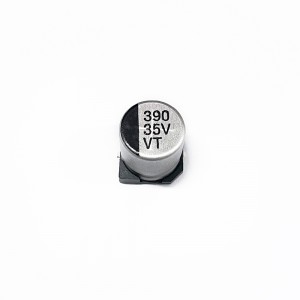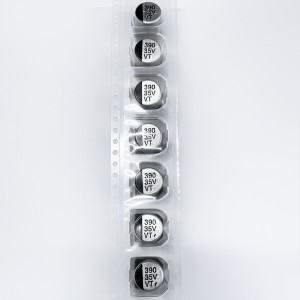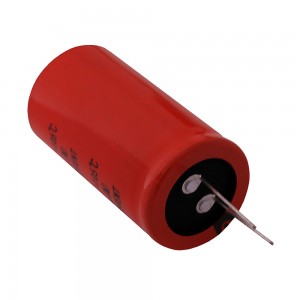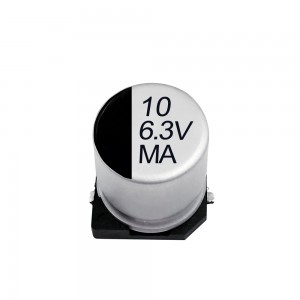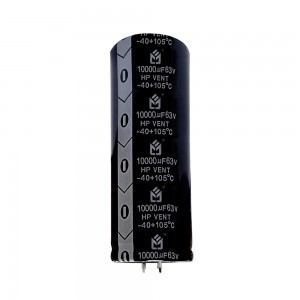Solid Electrolytic Capacitor 100uf 16v for Sale
Features
Wide operating temperature range: -55~+105℃
Low ESR, high ripple current
Load life of 2000 hours
RoHS & REACH compliant, Halogen-free
Application
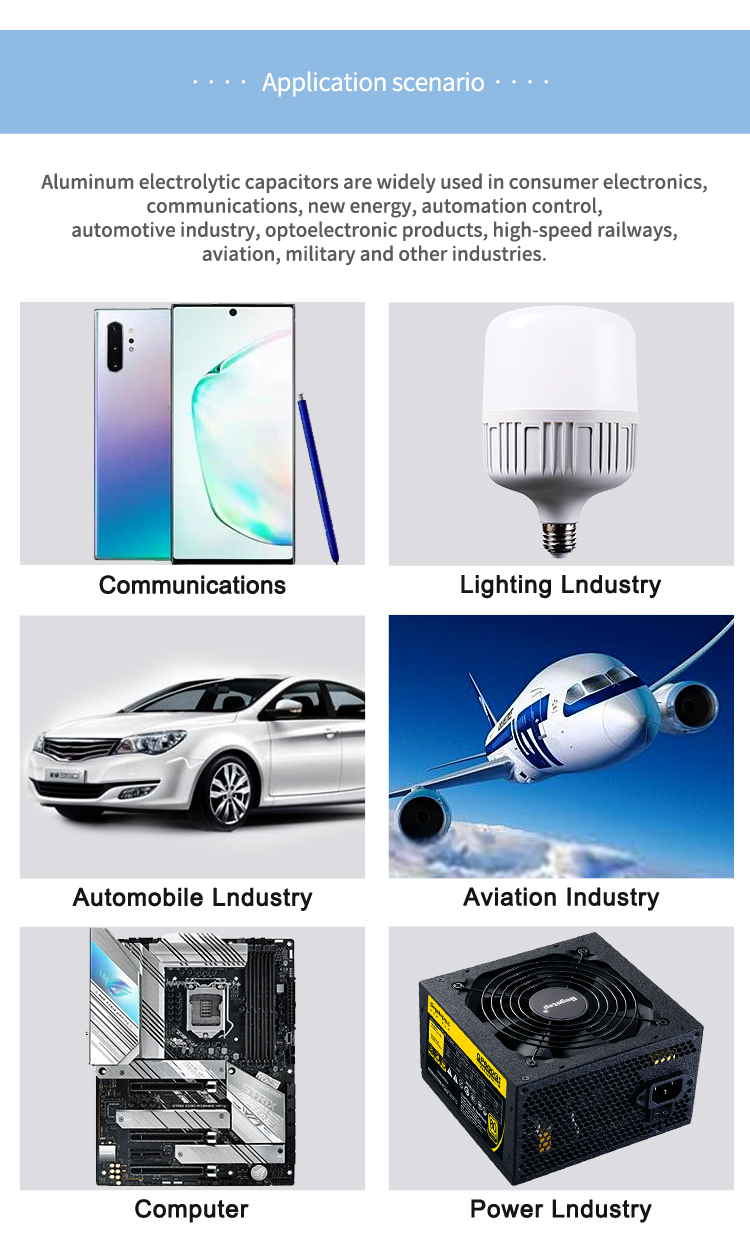
Due to the advantages of high frequency resistance, high temperature resistance, high current resistance, etc. In addition, the solid electrolytic capacitor itself is not easily affected by the surrounding temperature and humidity. It is suitable for low voltage and high current applications, mainly used in digital products such as thin DVD, Projectors and industrial computers, etc.
Production Process
FAQ
Q: What is the ESR of aluminum electrolytic capacitors?
A: The ESR of a capacitor refers to the equivalent series resistance or impedance of the capacitor. An ideal capacitor has no resistance, but in fact any capacitor has resistance, and the resistance value is related to the material and structure of the capacitor. Circuit failures caused by ESR are often difficult to detect, and the effects of ESR are easily overlooked during the design process. If the specific parameters of the capacitor cannot be selected during simulation, you can try to artificially connect a small resistor in series with the capacitor to simulate the influence of ESR. Usually, the ESR of tantalum capacitors is usually below 100 milliohms, while aluminum electrolytic capacitors are higher than this value, and the ESR of some types of electrolytic capacitors can even be as high as several ohms.
Q: What is the difference between SMD aluminum electrolytic capacitors and in-line aluminum electrolytic capacitors?
A: As long as it is an aluminum electrolytic capacitor, there is no essential difference in frequency characteristics, and the frequency characteristics of the capacitor do not depend on the package shape.
The volume of in-line passive devices is generally larger than that of SMD, and in-line devices need to be punched when making PCBs. The welding process is also different from that of SMD, which is more troublesome. Relatively speaking, in-line capacitors are mostly for high-power circuit applications.

